Various parts of the car’s drivetrain are nearing the end of development
Renault 5-based model nears end of development; kick-starts performance division’s push into mainstream
The Alpine A290 is in the final stages of testing ahead of its official unveiling, which has been confirmed for June.
Currently undergoing cold-weather testing in Sweden, the new Renault 5-based electric hot hatch will kickstart Alpine’s push into the mainstream market.
Various parts of its drivetrain are nearing the end of development, such as the behaviour of its electronic stability programme, its air-conditioning system and the speed at which it defrosts. Its bespoke winter tyres, developed by Michelin, are also being refined.
Alpine also revealed details about the A290’s interior. Its flat-bottomed steering wheel is said to be inspired by motorsport and is wrapped in nappa leather. Three driving modes are available: OV (overtake), RCH (recharge) and Drive.
This is the first time the French firm has shown the production car, following the A290 Beta concept.
It promises to be a more usable accompaniment to the widely acclaimed Alpine A110 coupé, without compromising its sporting character.
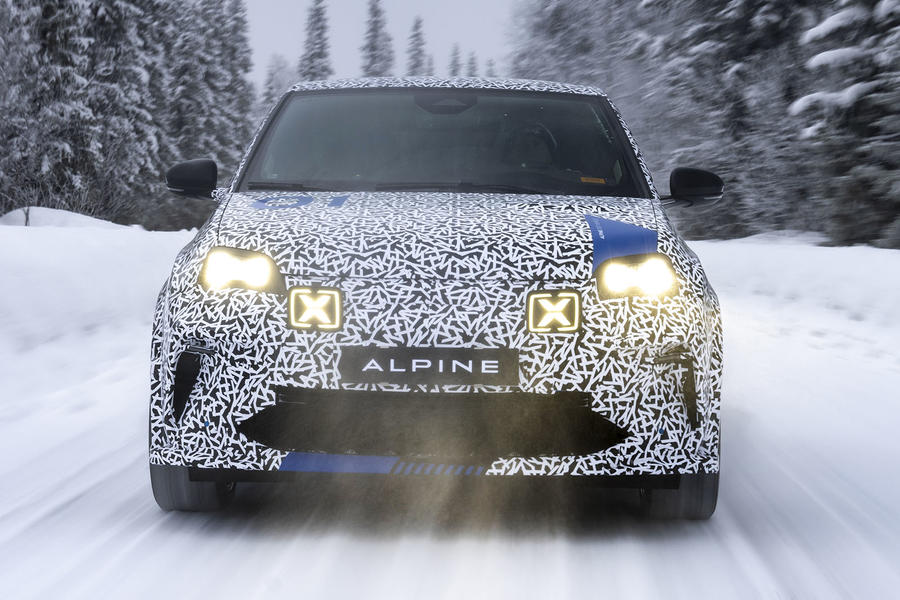
Although the A290 Beta featured an FIA-approved racing chassis and two motors mounted on the front axle, the production car will share the 5’s CMF-BEV platform. Renault has already touted the dynamic potential of the architecture, which mounts the battery pack under the car to lower its centre of mass and improve handling. It also features Independent multi-link suspension features at the rear.
Alpine has further fettled the platform to ensure it’s playful at low speeds and becomes more stable with acceleration. “The main thing is agility,” said design director Antony Villain. “And we know when we switched to EV, we have heavy batteries, but we want to find exactly the same driving philosophy: agility and pure pleasure.”
To this end, Alpine has added hydraulic bump-stops to the Renault 5’s suspension set-up, improving the A290’s ride and enhancing handling adjustability. Similarly, the torque vectoring on the production car’s single front motor has been set up to simulate a mechanical differential, boosting stability under braking and traction as you accelerate out of a corner.

The A290’s 2530mm wheelbase and wide track – the whole car measures 3990mm long and 1820mm across – make it inherently stable and agile, according to product boss Charlie Biardeau.
He added that A290 uses the same four-piston brakes as the A110, albeit tuned to blend naturally with the regeneration of the production car’s single front motor.
Biardeau explained Alpine is targeting a feeling of “transparency” through the brake pedal, with various strengths of regeneration. These may include a ‘one-pedal’ drive mode, maximising the motor braking so you can drive the car solely on the accelerator pedal – a boon in urban traffic jams.
The A290 will be significantly heavier than the A110 (around 1100kg, depending on specification) due to its battery. Alpine is “finding a new balance for today’s technology”, Biardeau said, adding: “The heritage of Alpine is agility and distinctive ride. It can be through the weight, but it can also be through other features, and EVs also provide you much more torque. It means that [the agility] sometimes isn’t in the figures, but in the feeling you will have – it’s a moving weight.
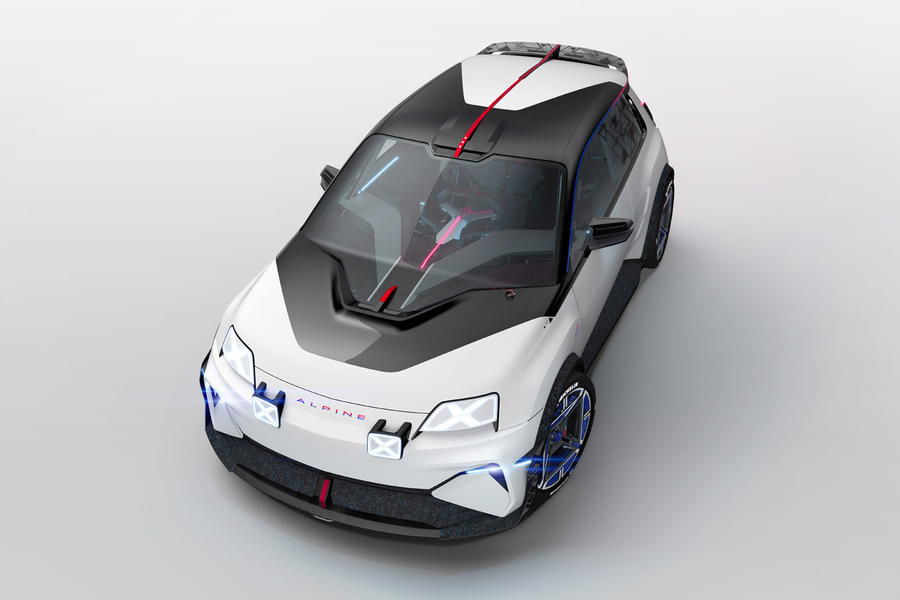
He added: “Usually, in an ICE hot hatch, you will have all the weight on the front. [Balancing the weight toward the rear] means that when you are braking, the rear is more stable; so you can play in other ways with the suspension and so on.”
Power, engineering boss Bonetto has confirmed to Autocar, will come in two levels. As previously reported, one will be a shortened version of the Renault Mégane E-Tech Electric’s 215bhp motor. The other – yet to be officially detailed – is expected to be the 268bhp unit developed by Renault, Valeo and Valeo-Siemens, slated to enter production in 2027. All power outputs are planned to provide “a good level of performance” without feeling “brutal”, said Bonetto.
Only one battery will be offered, with this expected to roughly match the Renault Zoe’s 52kWh capacity and 238-mile official range. The French firm previously announced that its new-generation pack – split into four ‘big modules’ – is more dense than the Zoe unit, and is 15kg lighter as a result.
Inside, the production A290 will look “1%” like the show car, according to interior designer Joshua Reer. The three-seat cockpit, which places the driver front and centre, is more-so a statement of intent for future Alpine interiors.
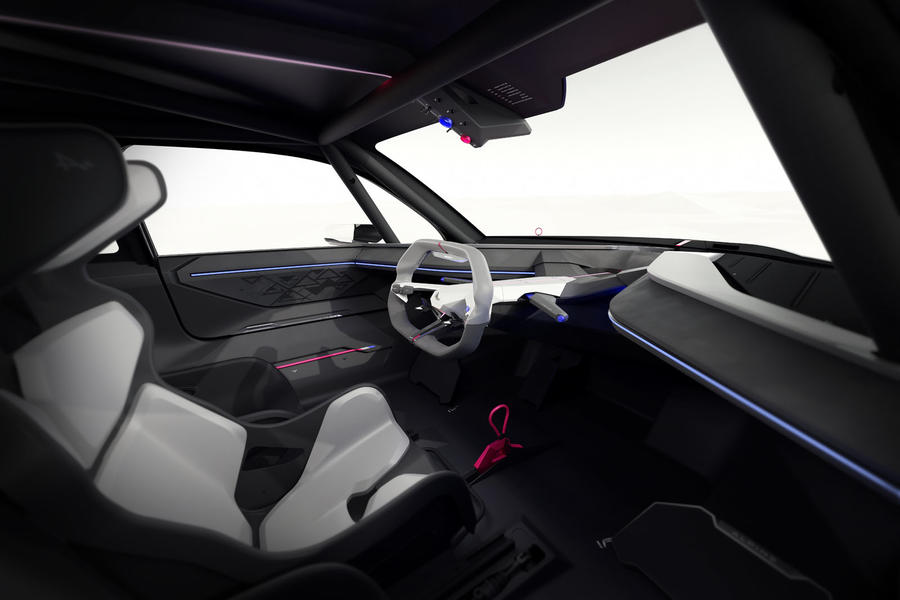
Minimalism is key to this interior, completely omitting touchscreens in favour of traditional button controls mounted to the roof and steering wheel. Critical information – speed and range – is shown on a small head-up display positioned above the steering wheel. “I think the interior has to bring the point home about what it means to sit inside an Alpine,” said Reer.
He added that the only feature likely to translate to the four-seat production car is the Formula 1-inspired ‘OV’ button, which enables a 10-second power boost. Alpine is yet to detail the scale of this uplift, but Bonetto said “it’s significant, you can really feel it”. Biardeau added that the button has a short cooldown period between bursts, but that this is still being tuned.
The Formula 1 link does not end there, for the Alpine Racing Formula 1 team, based in Enstone, had a role in shaping the A290’s aerodynamics. The gaps positioned underneath the X-shaped headlights – themselves inspired by the tape used on rally cars of yore – in the front bumper, and high on the rear quarter panel all channel air across the car’s flanks to reduce drag.
Other styling flourishes include the distinctive blue-flecked carbonfibre bodykit (likely to become plastic on the production model) and the dual faux-exhausts integrated into the rear splitter. However, these are not actually intended to present as exhausts; they are instead meant to resemble the fans used on high-powered gaming computers. According to Villain, this is a private joke between Alpine and Renault head honcho Luca de Meo himself, and feeds into the brand’s ambition to sell cars to the ‘gaming generation’.
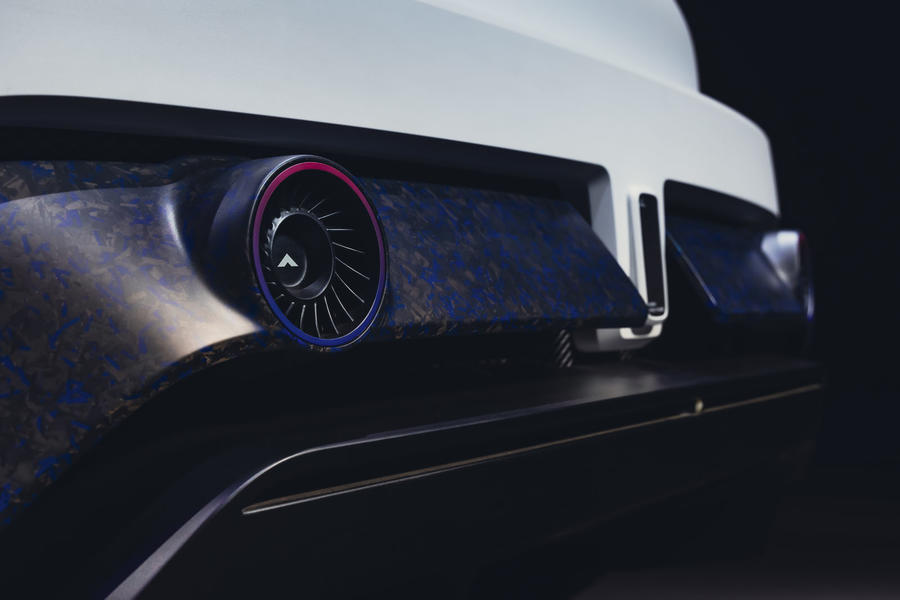
The A290 will go on sale alongside the Renault 5 on which it is based. That car is planned to be priced below the Zoe (currently starting at £29,995) but – given the extent of the chassis tweaks and positioning under a premium brand – the A290 is expected to come at a significant premium. Expect prices to start around £40,000, above the rival Abarth 500e and Cupra Born.
Future models will follow the A290’s naming structure, with ‘2’ denoting its name and ‘90’ reflecting that it is not intended to be a pure sporting model. Only a select few future models – currently the A110 alone – will wear the ‘10’ badge.
Renault’s hot hatch heritage
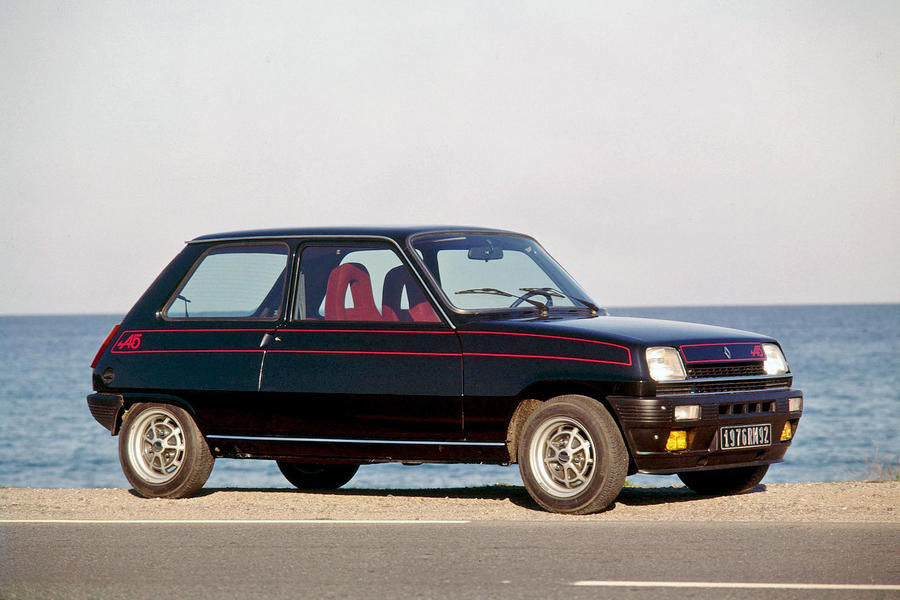
1976 Renault 5 Alpine
One of the very first hot hatches was highly chuckable and packed a whopping 93bhp.
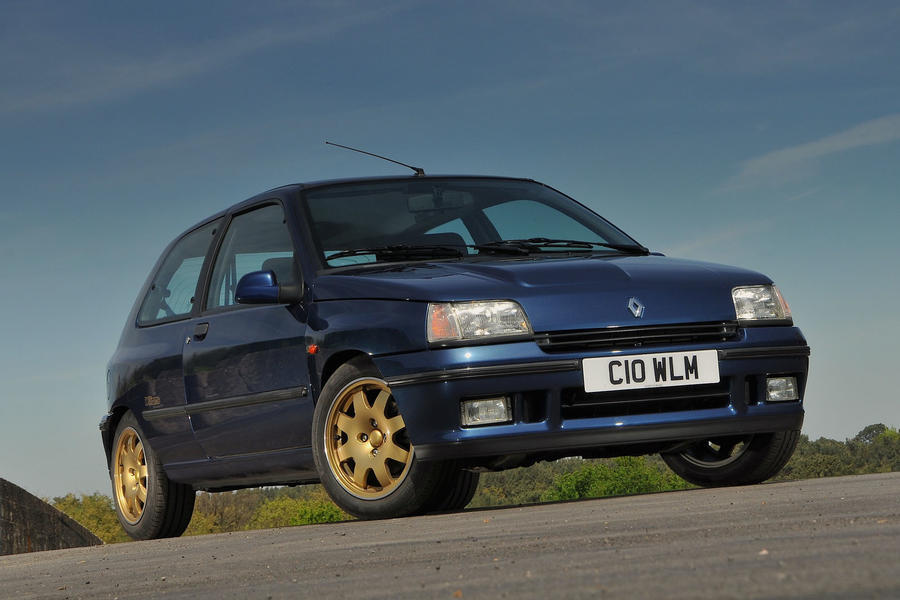
1993 Renault Clio Williams
Homologation special that dethroned Peugeot’s 205 GTi as the early-1990s hot hatch of choice.
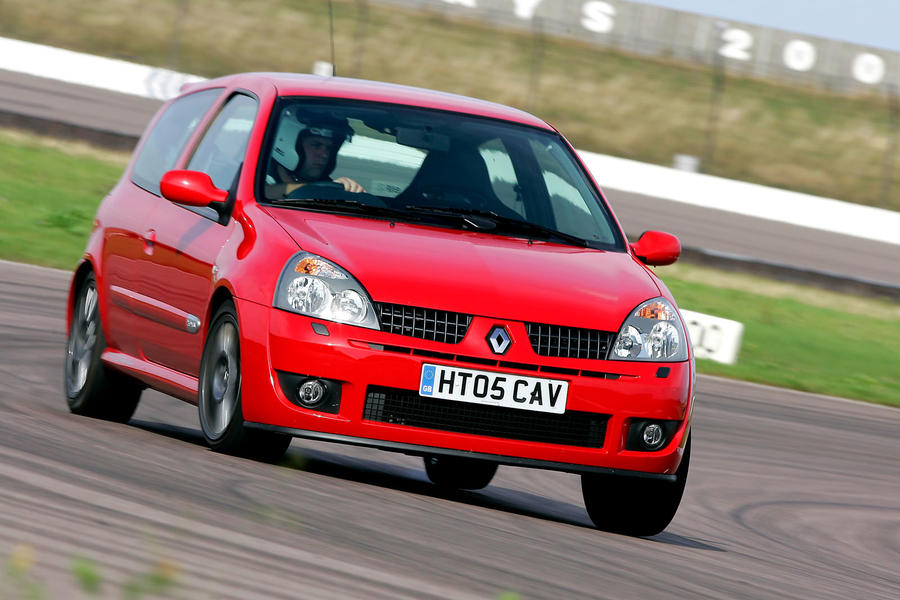
2005 Renault Clio RS 182 Trophy
Near-perfect hot version of the stellar Mk2 Clio with supercar-baiting pace on a twisty road.
![]()
2008 Renault Twingo RS 133
Arguably the 5 Alpine’s true successor. Agile and surprisingly spacious, if ergonomically troubled.
Read more: Is Alpine’s ‘gaming generation’ push the right approach?
Source: Autocar
